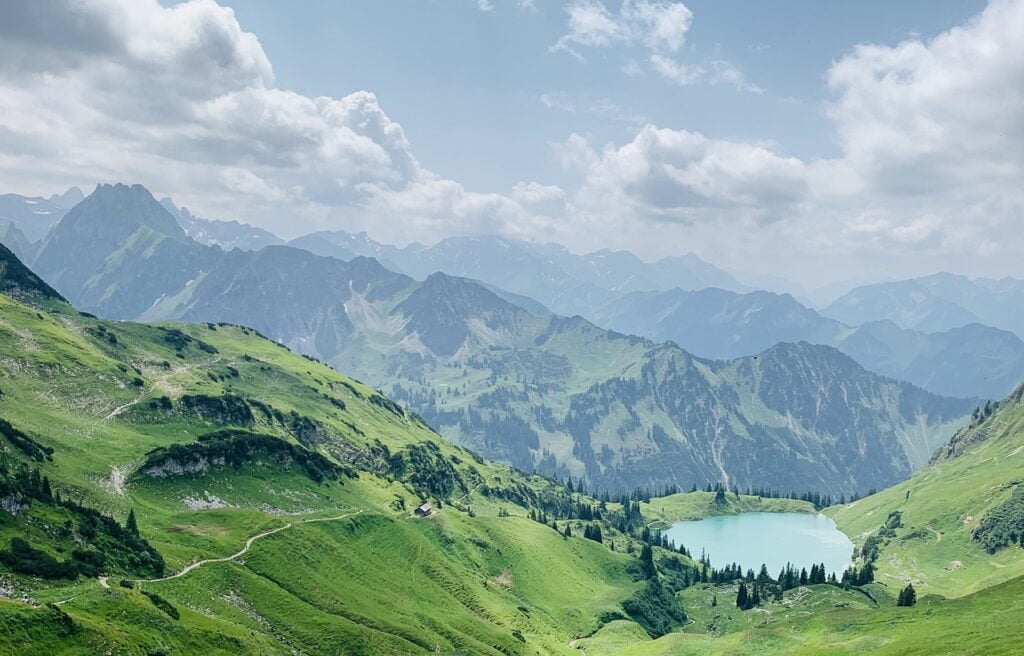
Europe boasts a myriad of breathtaking destinations, but few countries captivate the heart and imagination like Germany. From its enchanting medieval towns to its bustling modern metropolises, Germany offers an irresistible blend of history, culture, and adventure. Whether you’re an ardent history buff, a culinary connoisseur, or a lover of the great outdoors, Germany has something special for everyone.
In this blog post, we’ll explore the top 10 must-visit cities in Germany, each selected for its unique charm, cultural significance, and array of attractions. By the end, you’ll be inspired to pack your bags and experience the magic of these incredible cities for yourself.
What Makes Germany a Top European Destination?
Germany is a land of contrasts, where ancient castles stand alongside cutting-edge architecture, and bustling urban centres are surrounded by tranquil forests and rolling vineyards. Its storied past, from the Holy Roman Empire to modern reunification, has left an indelible mark on its cities, making them treasure troves of historical and cultural gems.
The country’s efficient transportation network, world-class accommodations, and vibrant culinary scene further enhance its appeal, making it a top choice for travellers seeking diverse and enriching experiences.
How We Chose the Top 10 Cities
Selecting the top 10 cities in Germany was no small feat. We considered a variety of factors, including historical significance, cultural offerings, unique attractions, and overall visitor experience. Our goal was to highlight cities that cater to a wide range of interests and provide a well-rounded glimpse into the best that Germany has to offer.
Without further ado, let’s dive into the top 10 must-visit cities in Germany.
Berlin – The Pulsating Heart of Germany
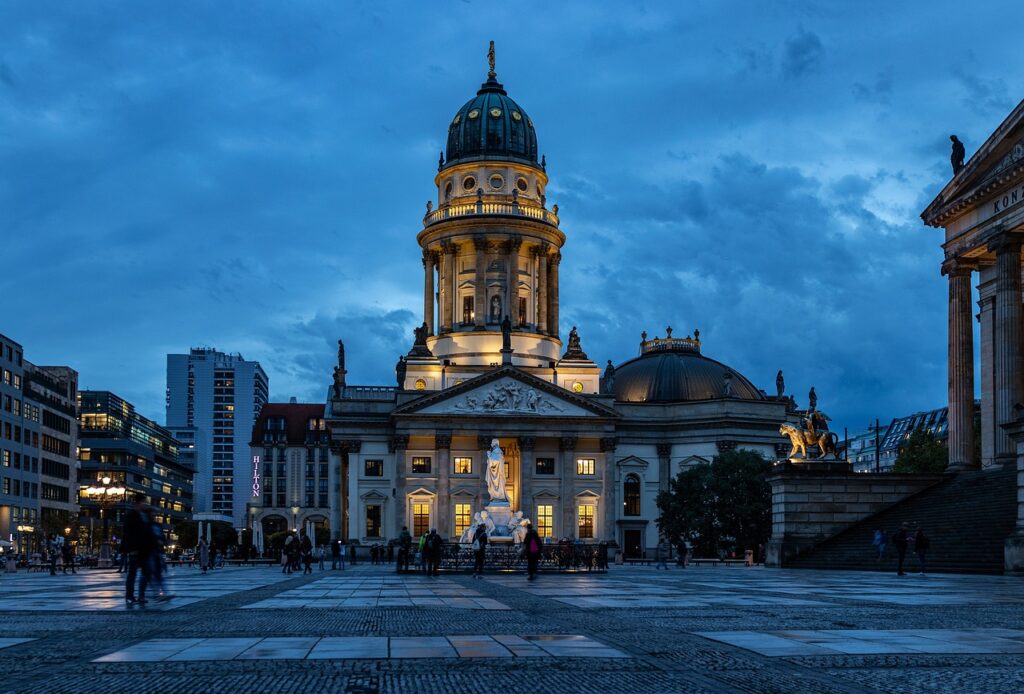
Historical Significance: Berlin, Germany’s capital, holds a pivotal place in history. From the Brandenburg Gate to remnants of the Berlin Wall, the city is a living museum of its tumultuous past and triumphant reunification.
Cultural Highlights: Berlin’s creative energy is palpable. Explore world-renowned museums on Museum Island, immerse yourself in contemporary art at the East Side Gallery, or catch a performance at the Berliner Philharmonie.
Unique Attractions: Don’t miss the iconic TV Tower for panoramic views, the bustling Alexanderplatz, and the serene Tiergarten Park. Berlin’s eclectic neighbourhoods, like Kreuzberg and Prenzlauer Berg, offer a taste of local life.
Munich – A Blend of Tradition and Modernity
Historical Significance: Munich’s rich history is evident in its stunning architecture and historic sites, such as the Nymphenburg Palace and the Glockenspiel at Marienplatz.
Cultural Highlights: The city is a cultural haven, boasting the world-class museums of the Kunstareal district, the opulent Bavarian State Opera, and the annual Oktoberfest celebration.
Unique Attractions: Visit the English Garden, one of the world’s largest urban parks, and explore the futuristic BMW Welt. For a taste of local culture, head to a traditional beer garden and savour Bavarian specialities.
Hamburg – The Maritime Metropolis
Historical Significance: Hamburg’s history as a major port city is reflected in its striking architecture and maritime heritage, from the historic Speicherstadt warehouse district to the modern Elbphilharmonie concert hall.
Cultural Highlights: The city’s vibrant cultural scene includes the Miniatur Wunderland, the world’s largest model railway exhibition, and the International Maritime Museum, which chronicles Hamburg’s seafaring past.
Unique Attractions: Stroll along the bustling Reeperbahn, Hamburg’s entertainment district, and take a boat tour of the picturesque Alster Lakes. The nearby Planten un Blomen park offers a peaceful retreat from the city’s hustle and bustle.
Cologne – A City of Gothic Grandeur
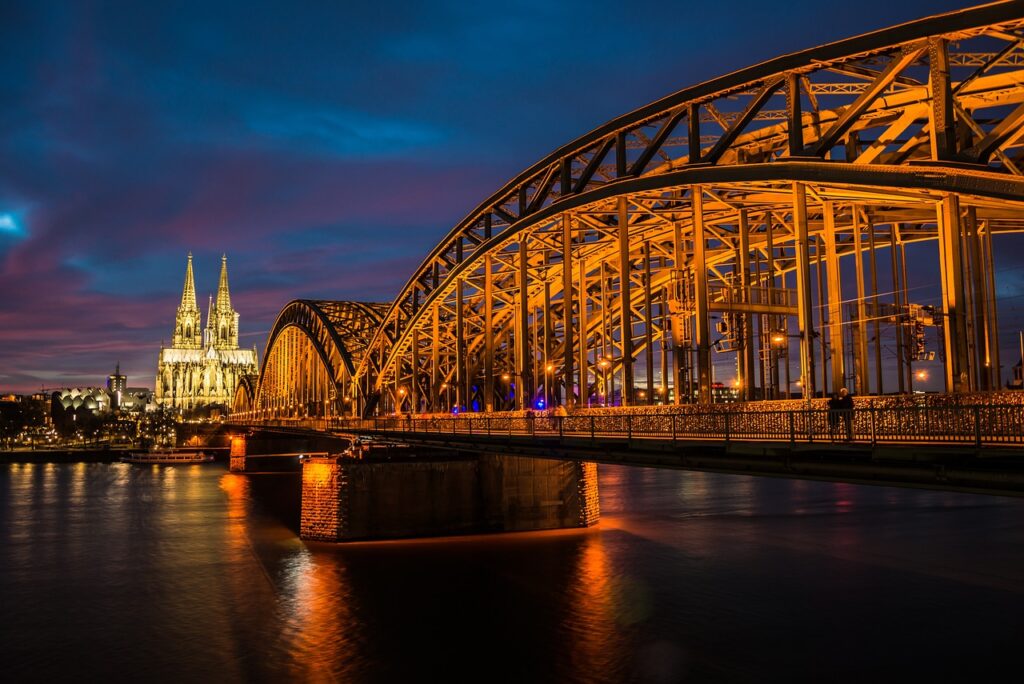
Historical Significance: Cologne’s history stretches back over 2,000 years, and its most iconic landmark, the Cologne Cathedral, stands as a testament to its medieval grandeur.
Cultural Highlights: The city’s cultural offerings include the Museum Ludwig, home to an impressive collection of modern art, and the Romano-Germanic Museum, which showcases artefacts from Cologne’s Roman past.
Unique Attractions: Climb the cathedral’s towers for breathtaking views, explore the charming Old Town with its colourful houses and lively squares, and indulge in the local Kölsch beer at a traditional brewery.
Frankfurt – The Financial Hub with a Cultural Twist
Historical Significance: Frankfurt’s modern skyline is juxtaposed with its rich history, from the Römer, a medieval building complex, to the Goethe House, the birthplace of Germany’s most famous writer.
Cultural Highlights: The city’s cultural landscape is diverse, featuring the Städel Museum’s impressive art collection, the historic Palmengarten botanical garden, and the vibrant Sachsenhausen district known for its apple wine taverns.
Unique Attractions: Experience the panoramic views from the Main Tower, stroll along the scenic River Main, and visit the futuristic MyZeil shopping centre. Frankfurt’s annual book fair is a must-visit for literary enthusiasts.
Heidelberg – A Romantic Riverside Retreat
Historical Significance: Heidelberg is renowned for its historic university, one of Europe’s oldest, and its picturesque Old Town, dominated by the majestic Heidelberg Castle.
Cultural Highlights: The city’s cultural charm includes the Philosopher’s Walk, a scenic path offering stunning views of the Neckar River and the Old Town, and the Studentenkarzer, a former student prison turned museum.
Unique Attractions: Take a leisurely boat ride on the Neckar River, explore the enchanting gardens of the castle, and visit the Heidelberg Zoo for a family-friendly outing. The city’s Christmas market is a festive delight.
Dresden – The Florence of the Elbe
Historical Significance: Dresden’s rich history is reflected in its Baroque and Rococo architecture, particularly in the Zwinger Palace and the Frauenkirche, a symbol of the city’s resilience.
Cultural Highlights: The city’s cultural treasures include the Semper Opera House, the Green Vault’s dazzling collection of royal treasures, and the Albertinum Museum’s impressive art collection.
Unique Attractions: Stroll along the picturesque Brühl’s Terrace, known as the “Balcony of Europe,” take a scenic boat ride on the Elbe River, and explore the unique Kunsthofpassage, a series of artistically designed courtyards in the Neustadt district.
Leipzig – The City of Music
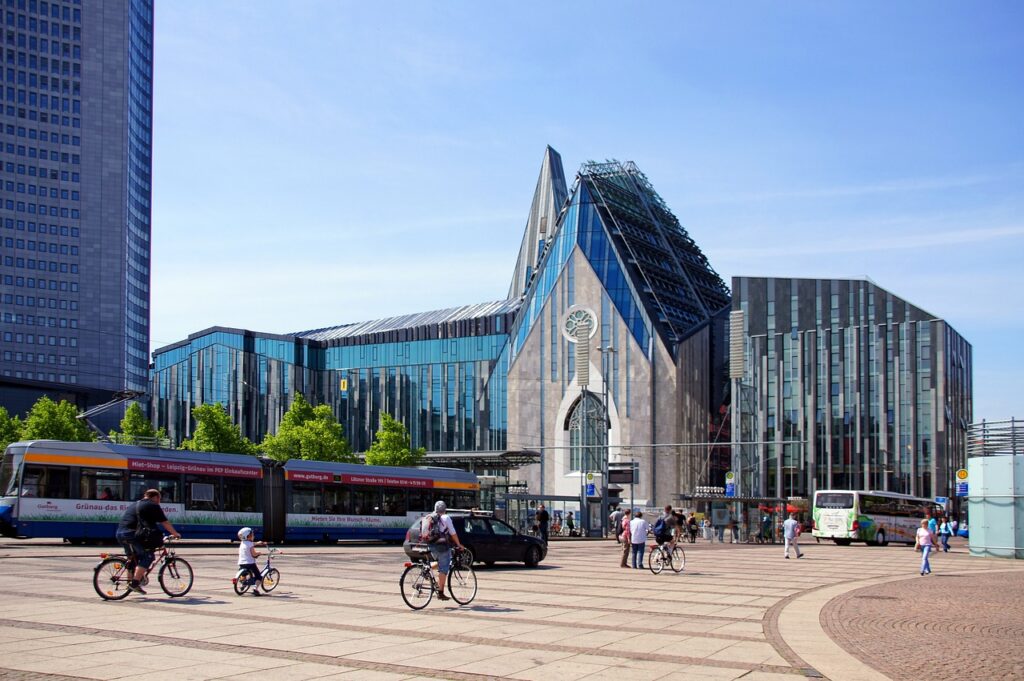
Historical Significance: Leipzig’s musical legacy is intertwined with its history, being the home of composers like Bach and Mendelssohn, as well as the site of significant events in Germany’s peaceful revolution.
Cultural Highlights: The city’s cultural gems include the Bach Museum, the Gewandhaus concert hall, and the St. Thomas Church, where Bach served as choirmaster.
Unique Attractions: Discover the vibrant atmosphere of the Spinnerei, a former cotton mill turned cultural complex, explore the charming streets of the Plagwitz district, and visit the Leipzig Zoo, one of the oldest and most renowned in the world.
Nuremberg – A Medieval Masterpiece
Historical Significance: Nuremberg’s medieval charm is evident in its well-preserved Old Town, the imposing Nuremberg Castle, and the historic Albrecht Dürer House.
Cultural Highlights: The city’s cultural offerings include the Germanisches National Museum, the largest museum of cultural history in Germany, and the Nuremberg Trials Memorial, a sobering reminder of the city’s role in post-World War II history.
Unique Attractions: Wander through the picturesque streets of the Old Town, visit the bustling Hauptmarkt Square with its famous Christmas market, and explore the beautiful gardens of the Hesperidengärten.
Stuttgart – The Birthplace of the Automobile
Historical Significance: Stuttgart’s history is closely tied to the automotive industry, with the Mercedes-Benz Museum and the Porsche Museum showcasing the city’s contributions to car manufacturing.
Cultural Highlights: The city’s cultural scene includes the Stuttgart State Opera, the Württemberg State Museum, and the stunning Ludwigsburg Palace, often referred to as the “Swabian Versailles.”
Unique Attractions: Take a scenic drive through the picturesque vineyards surrounding the city, visit the Wilhelma Zoo and Botanical Garden, and explore the vibrant shopping and dining scene in the Königstraße.
Freiburg – A Gateway to the Black Forest
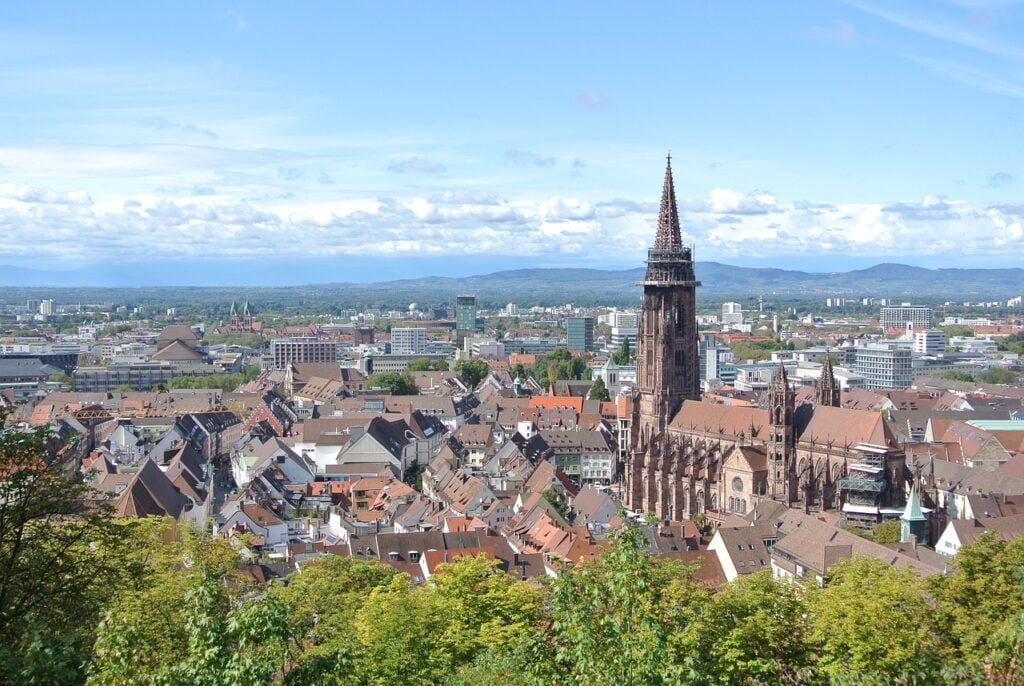
Historical Significance: Freiburg’s history is reflected in its charming medieval architecture, the stunning Freiburg Minster, and the historic Augustiner Museum.
Cultural Highlights: The city’s cultural offerings include the modern art museum, the vibrant Münsterplatz market, and the picturesque Schwabentor gate.
Unique Attractions: Explore the scenic beauty of the Black Forest, hike up the Schlossberg for panoramic views of the city, and relax in the tranquil surroundings of the Seepark. Freiburg’s eco-friendly initiatives and green spaces make it a model of sustainable living.
Practical Tips for Visiting Germany
Transportation: Germany’s efficient public transportation system, including trains, buses, and trams, makes it easy to get around. Consider getting a rail pass for unlimited travel on the Deutsche Bahn network.
Accommodation: From luxury hotels to charming guesthouses and budget-friendly hostels, Germany offers a wide range of accommodation options to suit every budget.
Local Cuisine: Don’t miss out on trying traditional German dishes like bratwurst, sauerkraut, and pretzels. Each region has its specialities, so be sure to sample local delicacies wherever you go.
The Final Word on Germany’s Must-Visit Cities
Germany is a country of unparalleled diversity, offering a wealth of experiences for every type of traveller. Whether you’re exploring the vibrant streets of Berlin, savouring the culinary delights of Munich, or immersing yourself in the rich history of Heidelberg, each city has its unique charm and allure.
Ready to start your German adventure? There’s no better time than now to explore these incredible cities. Book your trip today and experience the magic of Germany for yourself.
